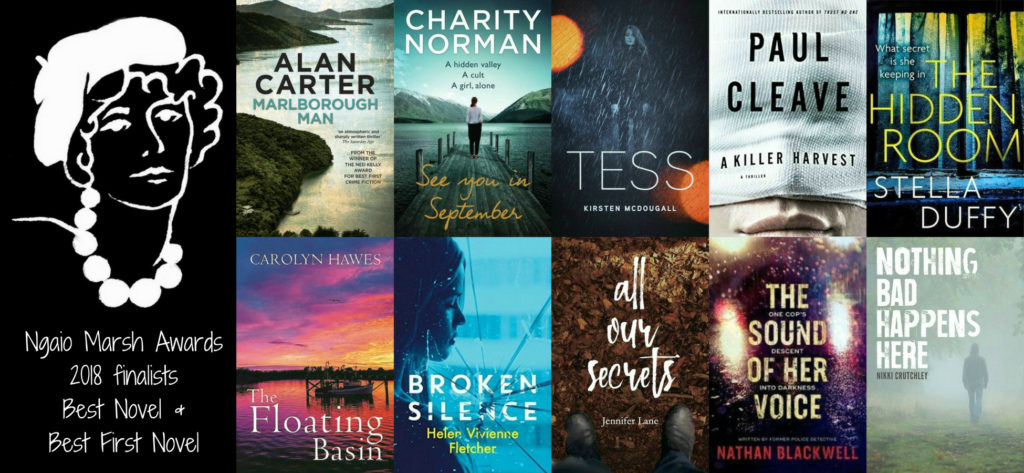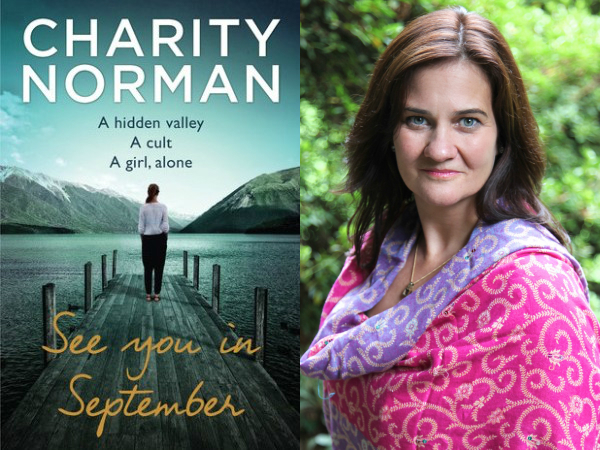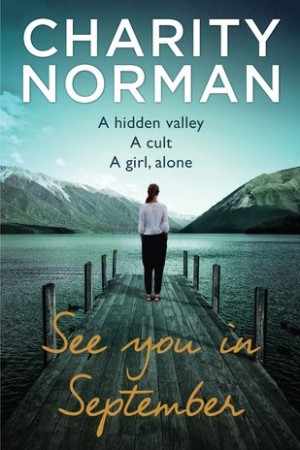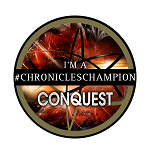

Back with the Ngaio Marsh Awards today and I’m finding out a little more about Charity Norman.
GETTING TO KNOW YOU WITH CHARITY NORMAN
Tell us a little about your current novel, See You in September.
An English student, Cassy, is backpacking in New Zealand when she accepts a lift from a van full of friendly people. They invite her back to their collective farm for the night, and since it’s late and pouring with rain she gratefully accepts.
Gethsemane is a sustainable community led by the kindly Justin Calvin. It’s set beside a lake, a haven of beauty and peace; it’s also a controlling cult with rigid belief systems, efficient at the subtle art of recruiting. By the time Cassy understands that her new friends intend her to stay forever, she no longer wants to leave.
Meanwhile her family in England is bereft when Cassy fails to come home. As the years pass, her loss and rejection of them tears the fabric of their lives. The clock is ticking. Paradise is flawed. What will happen when Justin’s prophesied Last Day comes to pass?
Where did you grow up and what was family life like?
I was born in Uganda, the youngest of seven children. My parents were CMS mission partners. We left when I was very young, moving to a rambling vicarage in North Yorkshire. My siblings are a bunch of strong personalities – noisy, opinionated, warm, constantly debating. As the youngest I had to shout loud to be heard.
I was nine when my father took a job in inner-city Birmingham, a bewildering change from our Yorkshire village. Most of my siblings had left home or were away at school. In retrospect I see that those years had a massive impact on me as a person and later as a writer.
Several times a day, even on Christmas day, rough sleepers or others in crisis would come to our door. Whoever was at home would make them tea and sandwiches and listen to their story. Meanwhile my mother taught in a residential remand centre for young women. Sometimes she brought her charges home for meals, though this ended when one of them burned the remand home down and sadly died in doing so.
My parents ran a self-help group for people struggling with mental health problems. I used to take the bus there after school. I’d make myself invisible, ostensibly out of earshot, doing my homework. I grew up hearing people describe what their voices were yelling today, or how they felt about their electro-convulsive therapy, or their experience of loneliness, depression or grief. I was left intrigued by the human spirit in all its messy, resilient glory.
Academic or creative at school?
Neither, or maybe both. I played the ‘cello and piano, did theatre, ballet, public speaking; but my experience of school, at least until sixth form, ranged from mild anxiety to abject misery. I recently stumbled across my old reports and they brought it all back: year after year, teachers obsessed over my scruffy handwriting, absent-mindedness and general chaos. Charity’s handwriting lets her down … Charity needs to pull her socks up … Charity must improve the presentation of her work …
There were several notable exceptions: my English teacher, Mrs Dickinson, was my champion. Mrs D, if you’re still out there, I thank you.
For the final two years I was at a boarding school where we were taught crucial life skills: how to curtsy, how to get out of the back seat of a Mini in a miniskirt. I did that very creatively.
First job you *really* wanted to do?
Spectacularly unrealistic! I wanted to be a fast-jet pilot. When I approached the RAF they said no, sorry, you’re a girl. This all-male policy has now changed. Since I’m a short-sighted, flat-footed, uncoordinated liberal-leftie with pacifist leanings, I think we can safely say that I was never, ever going to be a fighter pilot. I became a barrister instead.
Do you remember the first moment you wanted to write?
Ever since I could physically write, I wrote. It was just what I did. My first published work was a poem about the Rose window in York Minster. I was a spindly seven-year-old, lying on the floor of the knave, tongue sticking out of the side of my mouth as I penned my Ode to the Window. A kind nun asked what on earth I was doing. When I showed her, she put my poem in the York Minster Magazine. Thankfully it’s now lost to posterity. I’ll bet it was utter trash.
Who are your real-life heroes?
There are many, but I’ll choose those who care for a relative with dementia, giving their own final years to preserve the remnants of dignity and comfort of another human being. My father did this for my mother. For over a decade he faithfully stayed by her side, imprisoning himself in her increasingly disordered world, stubbornly respecting her despite the complete loss of her brilliant, witty mind – loving her to the end despite her fear, confusion and rage. He would absolutely not call himself a hero but he is. He’s one of thousands. In a way she was heroic, too.
Funniest or most embarrassing situation you’ve found yourself in?
Oh – so many! On the morning of my first contested hearing as a young barrister, I was nervously awaiting the arrival of the judge. The courtroom was crowded. It was warm, and I absent-mindedly took off my wig. Unexpectedly, terrifyingly – and a full three minutes early, dammit – the clerk was bellowing “All rise!” Everyone leaped to their feet as the judge strode in, stage right. He was a naval man with excellent posture, a stickler for punctuality and good order.
I snatched up my wig and slammed it onto my head. The clerk announced the parties, adding, “Miss Norman appears for the Plaintiff, Your Honour.”
I bowed solemnly and low – the judge gazed down on me from his lofty perch on the bench … but something was very, very wrong. It took me several seconds to appreciate that my wig was on back-to-front, its curling tails bobbing cheerfully in front of my nose.
Then there was the time my stockings fell down as I sprinted along Platform 3 at York station, cheered on by three hundred fellow passengers on the London train; or the day I vaulted over the back of counsel’s bench only to discover a six-foot drop on the other side; and the time …
Sun worshipper or night owl?
I love the night and sometimes work right through it. No telephone, no visitors, nobody asking if I know where their socks are. I know sunrise is glorious but I don’t often witness it – unless I’m just turning in.
A book that had you in tears.
I cannot read The Mousehole Cat by Antonia Barber without blubbing. It was a favourite of my children’s and I must have read it aloud hundreds of times. When I get to the final page I try so hard to control myself, but my throat swells and I always have to stop reading. It is overwhelming.
A book that made you laugh out loud.
Bill Bryson. Every time. Reading Notes from a Small Island on a plane was physically painful – guffaws, snorts, tears of suppressed laughter.
One piece of life advice?
Never be afraid to ask for help. Never be afraid to give it.
What the Ngaio Marsh Awards judges had to say about SEE YOU IN SEPTEMBER:
“A character-driven drama about the seduction of a young British woman by a cult based in rural New Zealand… Norman has clearly done her homework, and the depiction of how vulnerable people can succumb to the lure of ideology, charisma and the promise of utopia is aligned with what we know of real-life cases.”
“What is so powerful and challenging about this novel is the way Norman insightfully portrays how the main character, Cassy, is subtly indoctrinated into a cult. The reader experiences through Cassy’s eyes how initially appealing it is to be part of a community where the basic guiding principles are sustainability, positivity and the bonds of communal life. We see her change from a feisty, intelligent girl to a smiling and ‘positive’ replica of the women around her. The dual narrative is skilfully used to illustrate the effect on Cassy’s family of despair, anger and feelings of helplessness.”
About the Book.

Cassy blew a collective kiss at them. ‘See you in September,’ she said. A throwaway line. Just words, uttered casually by a young woman in a hurry. And then she’d gone.
It was supposed to be a short trip – a break in New Zealand before her best friend’s wedding. But when Cassy waved goodbye to her parents, they never dreamed that it would be years before they’d see her again.
Having broken up with her boyfriend, Cassy accepts an invitation to stay in an idyllic farming collective. Overcome by the peace and beauty of the valley and swept up in the charisma of Justin, the community’s leader, Cassy becomes convinced that she has to stay.
As Cassy becomes more and more entrenched in the group’s rituals and beliefs, her frantic parents fight to bring her home – before Justin’s prophesied Last Day can come to pass.
A powerful story of family, faith and finding yourself, See You in September is an unputdownable new novel from this hugely compelling author.
You can purchase See You In September (Allen and Unwin) Here.
Happy Reading!







